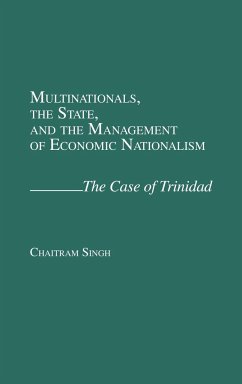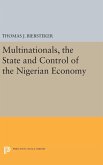Although the role of multinational corporations (MNCs) in developing countries has been the subject of intense academic interest, few studies have attempted a systematic examination of relations between small mineral-producing Third World countries and the MNCs involved in the extraction of these mineral resources. This book fills that gap by analyzing the opportunities available to a developing country with a limited mineral resource base to improve its bargaining position with the MNCs. Trinidad, a small petroleum producer whose industry has always been dominated by multinationals, is used throughout as an illustrative case study. A major contribution to the international business and international relations literature, this volume both adds an important dimension to the literature on multinational-host country relations and offers an in-depth analysis of the politics of a major Caribbean nation. The book begins with an introductory chapter that explores the two schools of thought -- the Marxists dependency and the bargaining perspectives -- regarding the role of multinationals in small mineral producing countries. The following chapters utilize a bargaining approach to examine the relationship between the Trinidadian government and foreign investors in the oil industry during the past 30 years. Singh concludes that nationalization is not the best answer for small mineral producers like Trinidad, because he host country's size makes undue dependence on the foreign investor likely for the duration of the concession agreement. In addition, Singh points out, the ability of the host government to achieve its managerial, technical, and capital goals vis-a-vis the foreign investor depends directly upon the government's ability to manage its domestic policies. Two appendices that profile officials interviewed during the course of the study, a bibliography, and an index for easy reference complete the study.
Hinweis: Dieser Artikel kann nur an eine deutsche Lieferadresse ausgeliefert werden.
Hinweis: Dieser Artikel kann nur an eine deutsche Lieferadresse ausgeliefert werden.








